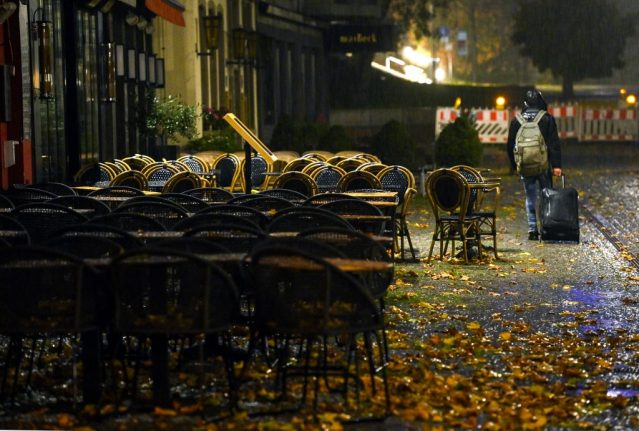“The fact that it is happening so fast makes it impossible for shops and clients to adapt to the new situation. This isn’t like transporting tomatoes, there are security demands that need to be met,” security expert Per Geijer of Swedish retailing employers’ organization Svensk Handel told The Local on Tuesday.
The comments come after Panaxia’s bankruptcy administrator Lars-Henrik Andersson issued a statement on Tuesday declaring his intention to halt attempts to sell the bankrupt firm. This means the company’s assets will go straight into liquidation.
“There is not enough interest in buying Panaxia. And it isn’t justifiable that the administrators keeps the company going,” Andersson told Sveriges Radio (SR) on Tuesday.
Cash transport firm Panaxia filed for bankruptcy on September 5th after a rocky financial year.
Two of the company’s top managers had been arrested in April this year. In June, the Swedish debt enforcement agency (Kronofogden) seized around 35 million kronor ($5.3 million) in assets, but the two suspects were later released, although the suspicions remained.
The company had also been struggling to keep afloat after a reported loss of quarter of a billion kronor.
Two days after the bankruptcy, Panaxia’s board contacted the Economic Crime Authority (Ekobrottsmyndigheten), saying that large sums of money seemed to have disappeared from a company account.
Last week the Economic Crime Authority confirmed that formal charges of aggravated accounting fraud will be filed later in the autumn against two former Panaxia managers.
At the moment, retailers are facing two major problems caused by the Panaxia demise, according to Geijer.
On the one hand, there is the missing money which is going to make it hard for many of the affected shops to survive.
On the other, there is the difficulty in transporting any cash, which is now making the organization recommend the usage of card over cash.
“With no way of transporting cash there is an added risk of thefts and robberies that we had so far been trying to avoid by using cash transport services,” Geijer said.
According to Geijer, the situation is having a negative impact on the whole of the cash handling industry in Sweden and the best scenario would be if funds could be found to guarantee that the company could continue to operate for a transitional period of two months or so
“Then retailers would have had time to find an alternative service and to enter into new agreements,” said Geijer.
He added that a slower liquidation process would allow more time for a strong buyer to appear that could take over Panaxia’s operations.
“Although that doesn’t look likely at the moment,” he told The Local.
Rebecca Martin



 Please whitelist us to continue reading.
Please whitelist us to continue reading.
Member comments